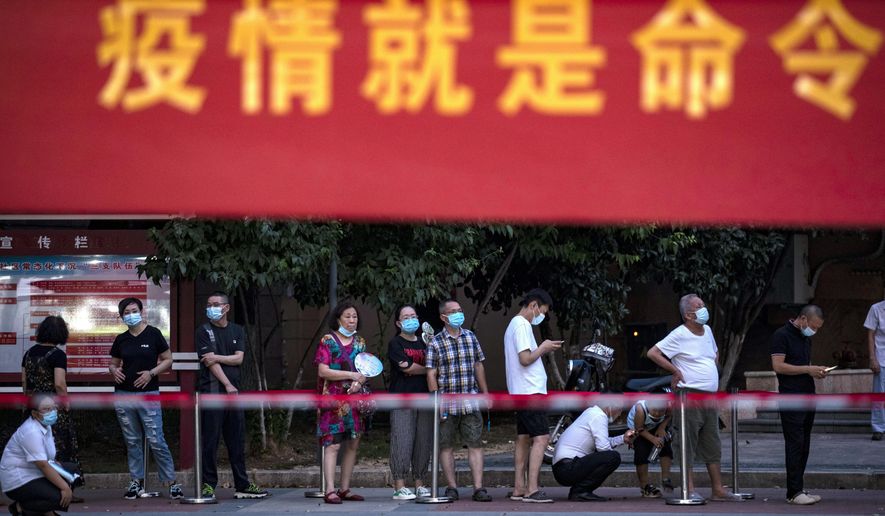Governments across the globe showed themselves to be “untrustworthy and ineffective” in their response to the COVID-19 pandemic, a medical journal said in a scathing report that said leaders were slow to react to the virus and forge a coordinated response.
The Lancet COVID-19 Commission also said global leaders should keep digging into the source of the virus after inconclusive investigations into whether the pathogen spilled over from animals or leaked from a Chinese lab.
The report faulted governments and public health agencies for failing to recognize the threat of the virus early on, amid reports of a mysterious illness in Wuhan, China, and the role of airborne transmission during the early months of the pandemic.
The commission faulted the lack of coordination among nations in combatting the virus, the lack of funding and support for poor countries, delays in gathering data on infections and variants and the failure to combat bogus information — often online —about the virus and mitigation measures.
“Too many governments have failed to adhere to basic norms of institutional rationality and transparency, too many people — often influenced by misinformation — have disrespected and protested against basic public health precautions, and the world’s major powers have failed to collaborate to control the pandemic,” the report said that was published this week in The Lancet, a peer-reviewed general medical journal.
The Lancet said the multiple failures resulted in a devastating crisis that, as of late May, had killed 6.9 million people, at least in known cases. The commission said the virus might have killed up to 17.2 million.
Lancet also prodded governments to figure out how the virus entered the human population. Probes into the origins have been disappointing and stymied by a lack of Chinese cooperation.
“The proximal origin of [the virus] remains unknown. There are two leading hypotheses: that the virus emerged as a zoonotic spillover from wildlife or a farm animal, possibly through a wet market, in a location that is still undetermined; or that the virus emerged from a research-related incident, during the field collection of viruses or through a laboratory-associated escape,” the report said. “Commissioners held diverse views about the relative probabilities of the two explanations, and both possibilities require further scientific investigation.”
The Lancet commission said that finding the answer will strengthen public trust in health authorities and help governments avoid future outbreaks.
The World Health Organization said it welcomed the commission’s report but said it “does not, however, convey the full arc of WHO’s immediate, multi-year, life-saving response.”
WHO said it activated its advisory panels and its alert system immediately after learning about mysterious cases in Wuhan on Dec. 20, 2019, and declared a public health emergency of international concern before the end of January, when there were no deaths reported outside of China.
For more information, visit The Washington Times COVID-19 resource page.
• Tom Howell Jr. can be reached at thowell@washingtontimes.com.




Please read our comment policy before commenting.